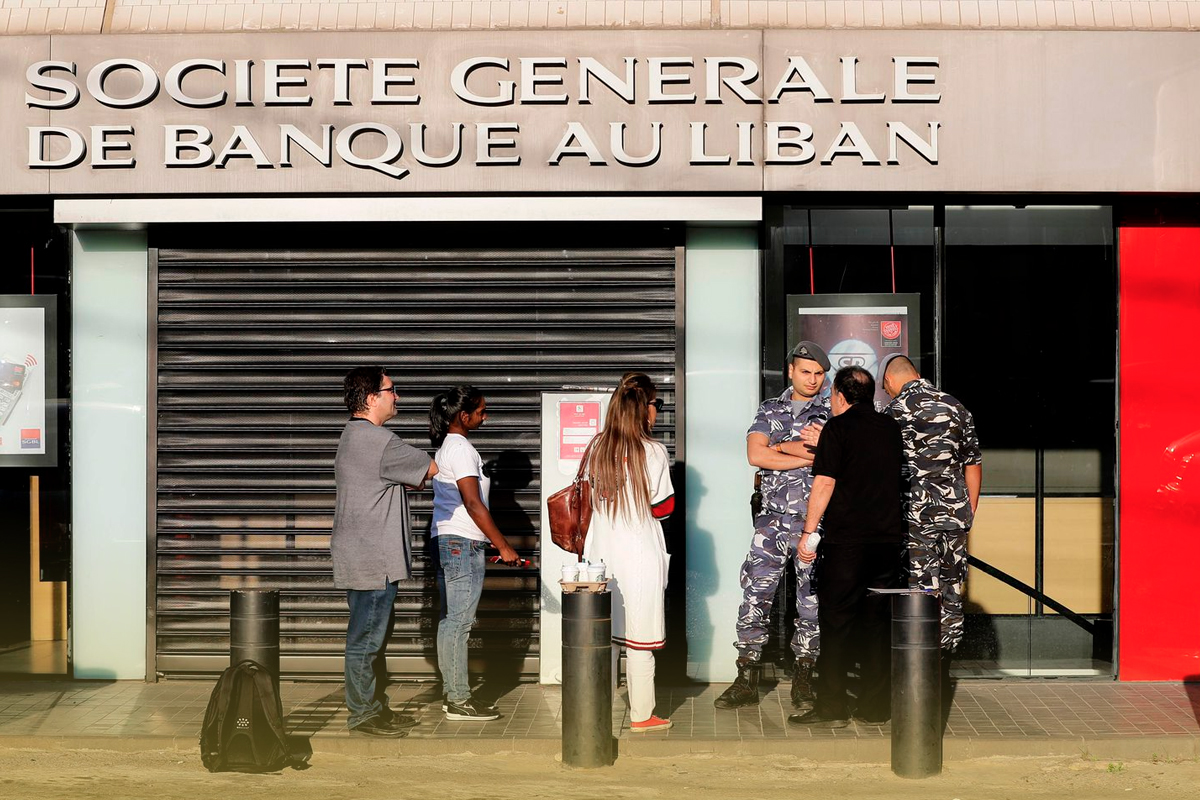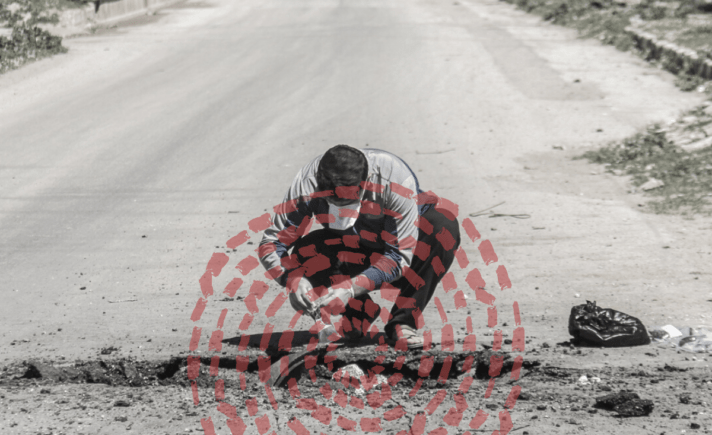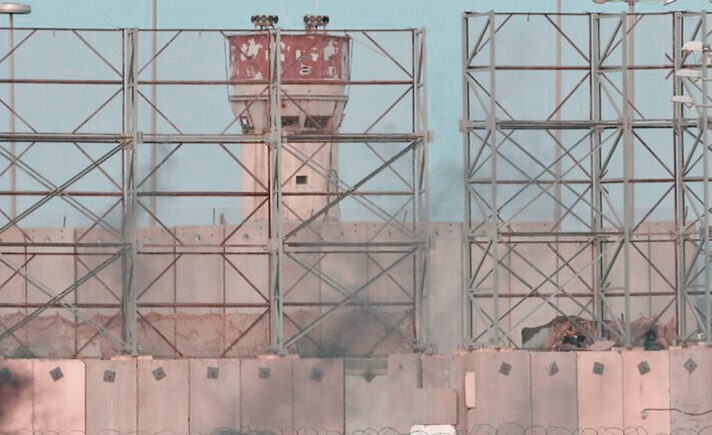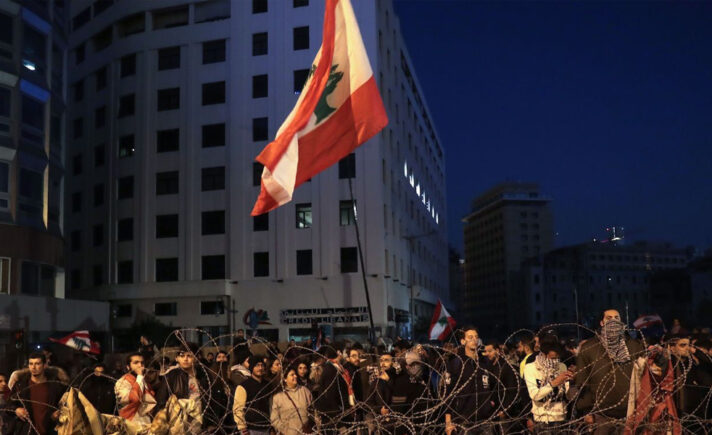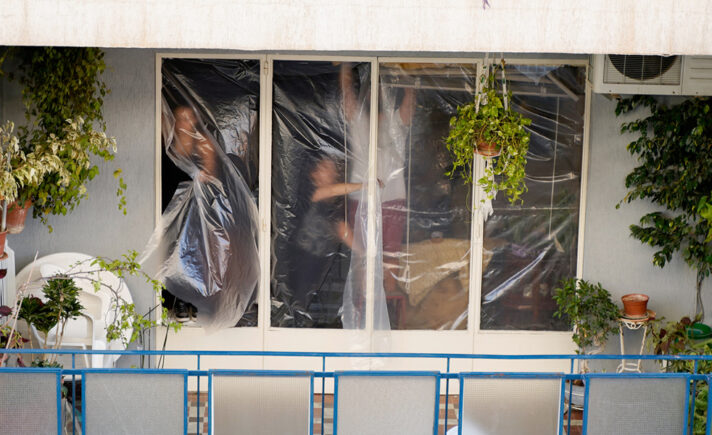“If you’re not going to the bank and withdrawing as much as you can, as often as you can, you’re a fool.” So this writer was recently told by a Lebanese friend in Beirut’s Riad al-Solh Square, one of the epicenters of the protests that have swept the length and breadth of the country since mid-October.
Everyone was doing it, she insisted. It was the dictionary definition of a bank run: deposit holders racing to get their money out, fearing the banks were insolvent, and by doing so increasing the chances of the banks becoming insolvent, in a self-fulfilling prophecy. Sure enough, bank branches saw lengthy queues last month when reopening after extended closures linked to the nationwide demonstrations. On Sunday, Caretaker Economy Minister Mansour Bteish said US$4 billion in cash had been withdrawn from local banks over the last three months, according to Lebanese Central Bank data.
*
One day in late September, dollars abruptly disappeared from Lebanon. (Though it has its own currency, the lira, Lebanon’s economy and financial system largely run on dollars.) It started at the ATMs, which stopped dispensing greenbacks. Then the banks closed their doors. How were people to pay rent and bills, or meet their credit card dues? The Economist’s Beirut correspondent joked about flying to nearby Cyprus to get cash to pay his landlord. In fact, it was no joke at all: he later told Al-Jumhuriya he did indeed spend “two days running around to various banks in Larnaca until I’d collected enough USD.”

Banks are now open again—intermittently—but strict limits have been placed on cash withdrawals. This author’s wife was recently told at her local branch that she was allowed no more than $300 per week; others have cited figures as low as $150. Social media is awash with stories of people queuing for hours to collect paltry sums, often pleading with tellers to make exceptions for medical, educational, or other urgent needs.


The dollar drought has put immense strain on the Lebanese lira, which has lost over a quarter of its street value at the time of writing, though officially the Central Bank’s peg of just over 1,500 liras to the dollar remains unchanged. The exact street value at any given time varies from one exchange bureau to another. Fadi Exchange Co., in Beirut’s Hamra district, for example, told Al-Jumhuriya on Tuesday he was selling dollars at 2,020LL. A nearby competitor, Ugarit Exchange, said he had no dollars at all. One online resource, lebaneselira.org, which compiles an average daily rate from multiple currency exchanges, listed Wednesday’s rate as 2,080LL, while another website, also ostensibly based on exchange office sources, put it at 2,050LL. Whichever figure one uses, it’s safe to say the vast majority of Lebanese who receive their salaries in liras, and hold lira-denominated savings, have seen their income and assets plummet substantially in real terms over the last few weeks.

Yet the extent of the crisis has the potential to reach much further. Lebanon is a country heavily reliant on imports for almost everything, from fuel to medical supplies to eighty percent of its food. Importers demand payment in dollars, not liras. Last month, the head of Lebanon’s hospitals syndicate, Suleiman Haroun, warned the dollar shortage threatened to deplete vital medical stocks, which would run out within a month if not replenished by dollar-denominated purchases. Acknowledging these and related concerns, the Central Bank has allocated dollars to facilitate imports of medicine, wheat, and fuel. Yet, as one gas station owner in Mount Lebanon who asked not to be named told Al-Jumhuriya on Wednesday, fuel importers are still obliged to come up with 15% of the purchase price in dollars by themselves (the remaining 85% being payable in liras). This forces them to buy those dollars at the inflated street price, hammering their margins and indeed causing many to operate at a loss. On Friday, they held the latest of several nationwide strikes to petition the government to allow them to raise prices accordingly; a demand met with firm refusal. Unless and until a resolution is found, the possibility remains for further strikes, with all the inconvenience, heavy traffic jams, and instability they entail.
How do the Lebanese cope with all this? How does one live, in effect, without cash?
For one thing, they eliminate unnecessary expenditures, as well as some necessary ones. These may include accommodation: sufficient numbers of people have terminated rent contracts with landlords to move out of Beirut back in with their families elsewhere that rental rates are said to have fallen by well over 10% in parts of the capital.
A second way people have survived is by paying more for everything. The lira’s rapid depreciation has led, by the laws of economics, to a corresponding rise in prices of imported goods. At supermarkets, customers can be heard grumbling of price spikes of as much as 50% for certain items. In spite of this, the shelves empty quickly, as people stock up their cupboards, uncertain whether the same products will be available at all the following week.
Thirdly, the Lebanese find inventive ways around the problem, with the resourcefulness for which they have long been renowned. Many of the millions of Lebanese living abroad—in the Gulf; Europe; the Americas; or even further afield—have flown home in recent weeks bearing bundles of cash for relatives. On the WhatsApp messaging service, information circulates about how to use various downloadable applications to evade local banks’ restrictions on international money transfers.
Still, the above are not enough to prevent the most vulnerable falling through the cracks. On Sunday, in the eastern border town of Arsal, 40-year-old Naji Fliti was asked by his 6-year-old daughter for 1,000LL (around $0.50 at current street prices) to buy a flatbread. Fliti, who had been unable to find work for two months, discovered he didn’t have 1,000LL to give her. After waiting for her to leave the room, he hanged himself. “He is a victim of the economic situation,” his cousin Hussein would later tell AFP.
As this article was going to press, reports emerged of two further suicides driven by similar financial woes: that of Dani Abi Haidar in al-Nabaa, east of Beirut; and Antonio Tannous, a policeman in north Lebanon’s Akkar. Both are said to have shot themselves.


